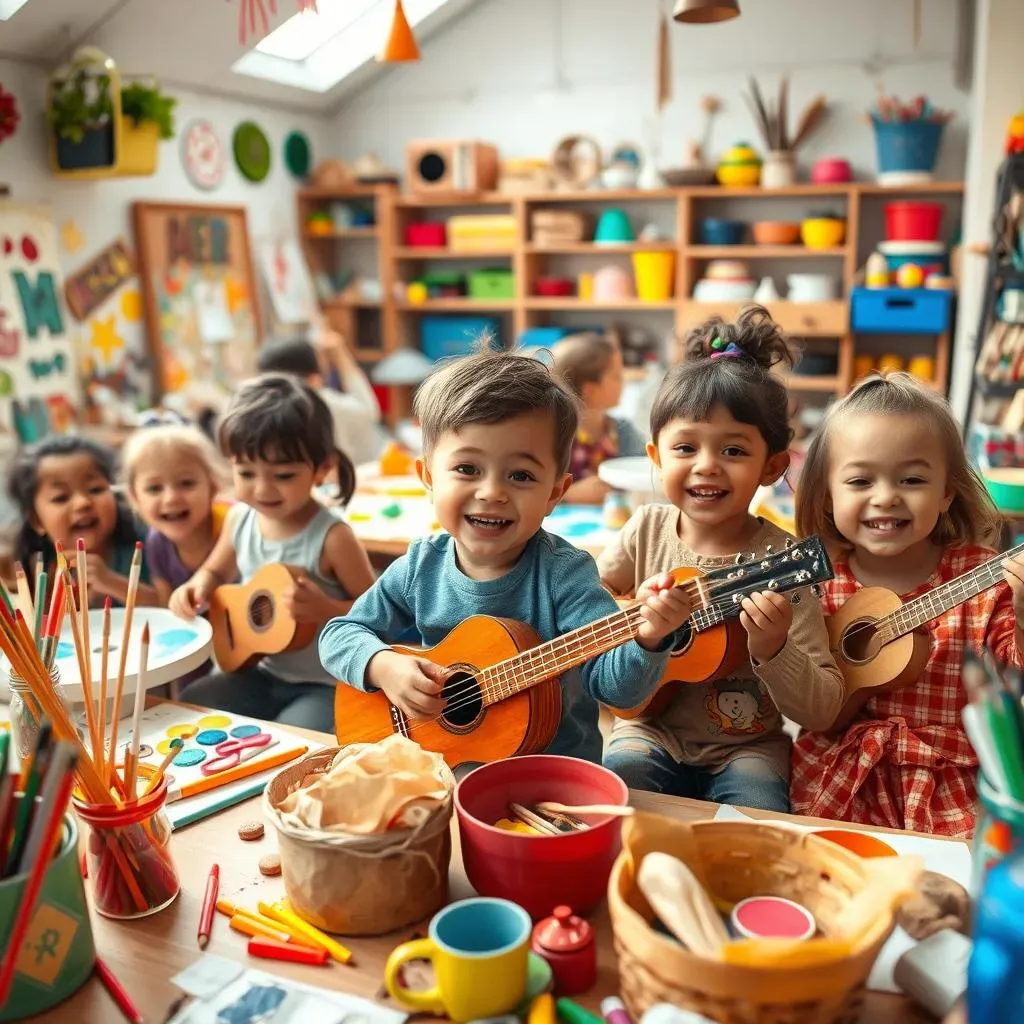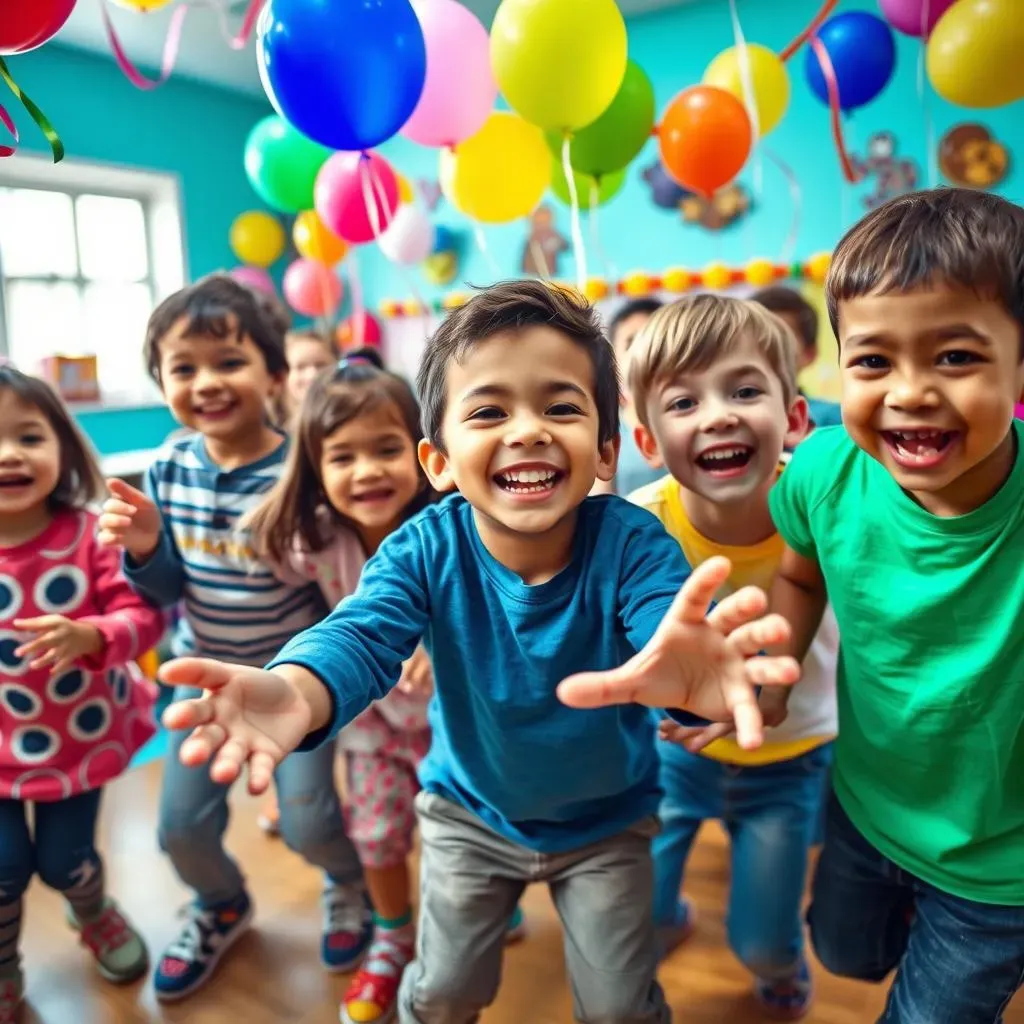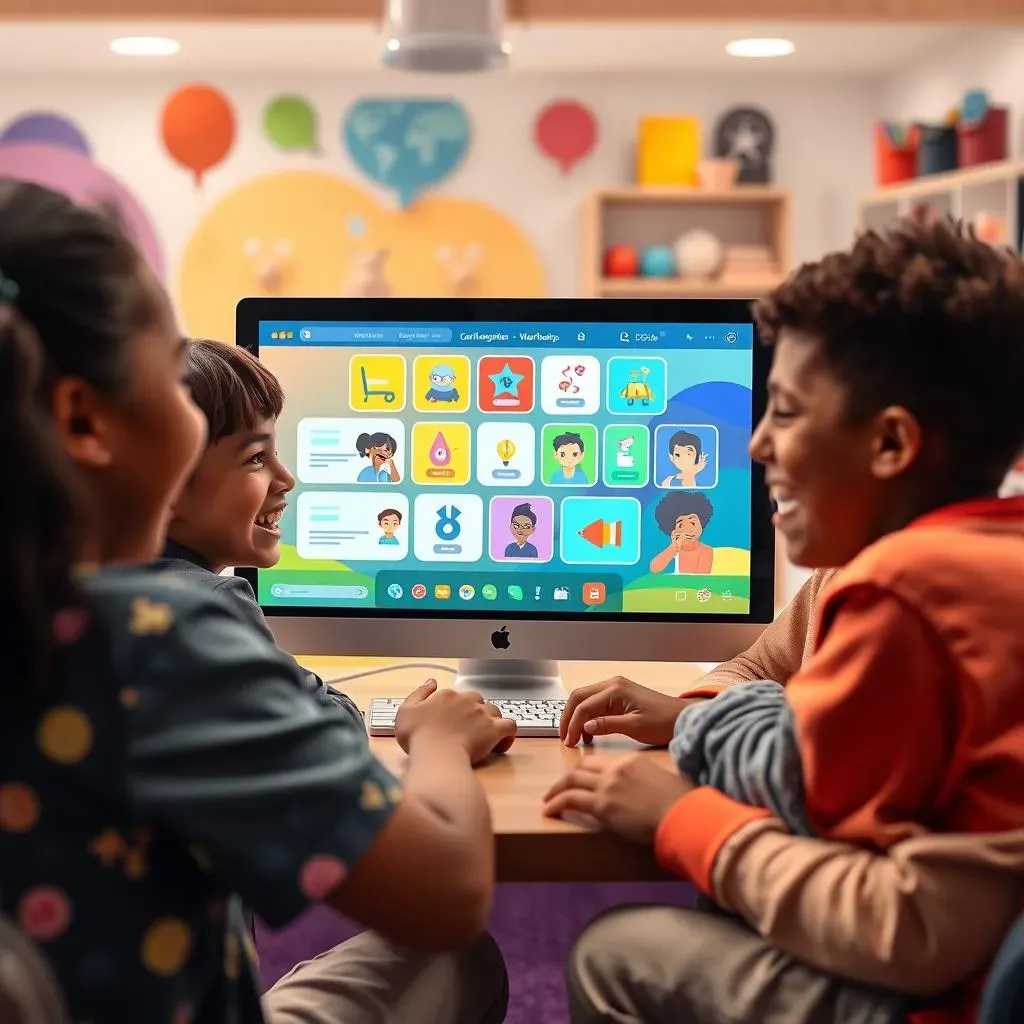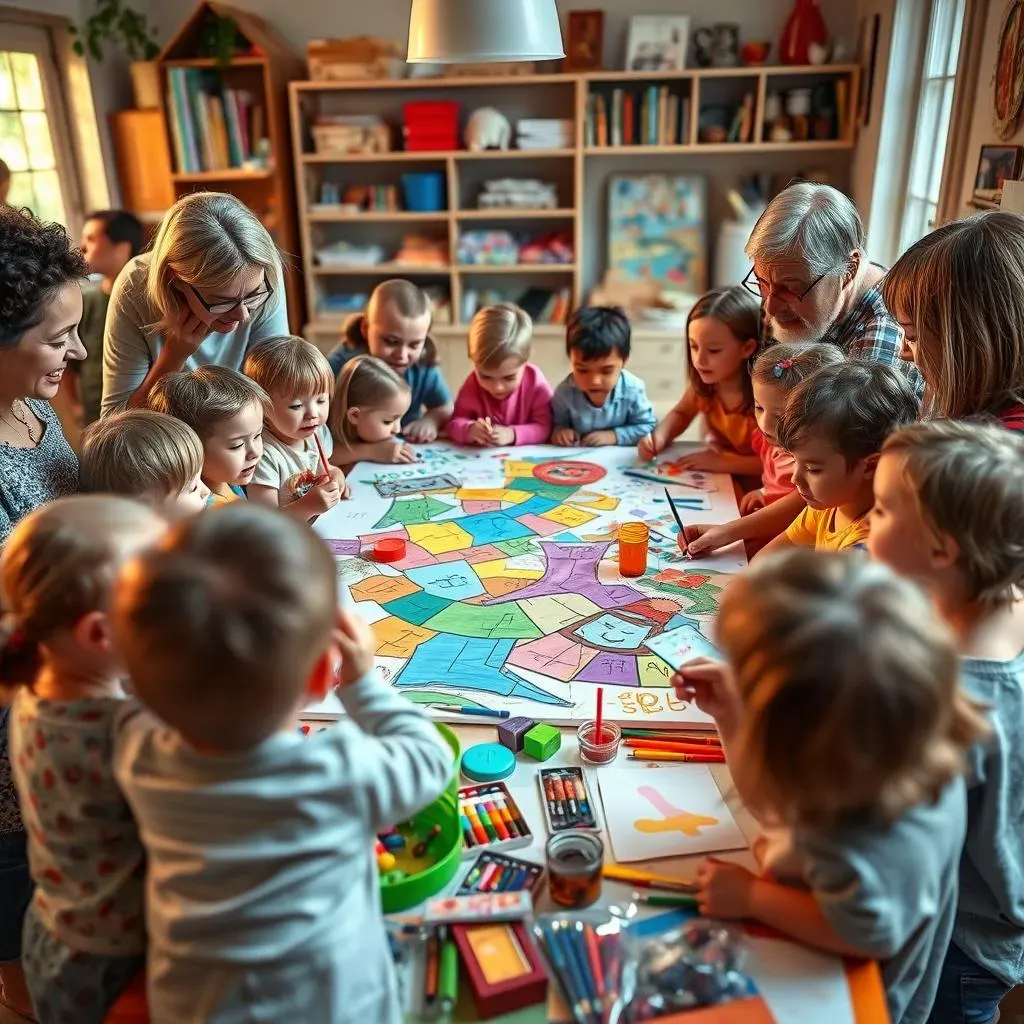Table of Contents
Ever wondered how to turn a regular day into a magical adventure for kids? It's simpler than you think! This article is your treasure map to unlocking amazingideas for children's workshops. Forget boring lessons; we're talking about sparking creativity, boosting emotional intelligence, and having a blast while doing it. We’ll explore how to create these workshops in different settings, whether it's a cozy corner at home, a lively birthday party, or even an online class. You will learn about activities that range from hands-on arts and crafts to musical escapades and energetic games. We will show you how to make each workshop an unforgettable experience. Think of it as your guide to transforming ordinary moments into extraordinary memories, all while encouraging kids to express themselves and grow. Get ready to dive into a world where imagination knows no bounds!
Creative Workshop Ideas for Kids
Creative Workshop Ideas for Kids
Sparking Imagination Through Art
Let's kick things off with art, shall we? Forget those boring coloring books. I'm talking about messy, hands-on art that lets kids get their fingers dirty. Think about setting up a station where they can create their own mini-masterpieces using everything from paint and glitter to old magazines and natural items. It's all about letting them explore their creativity without any rules. I remember one time, we gave the kids a bunch of random objects and told them to make sculptures. The results were absolutely wild and wonderful. It's amazing what kids can come up with when they're given the freedom to just create.
And it’s not just about the final product, it's the process. The way they mix colors and layer textures. The way they experiment with different materials and techniques. It's all about learning through play, which is the best way to learn, in my opinion. You can even introduce them to different artists or art styles to get their creative juices flowing. One workshop, we did a deep dive into Van Gogh's Starry Night. The kids then made their own versions using cotton swabs and paint. They loved it! It's all about making art accessible and fun.
Art Activity | Materials Needed | Why it's Great |
|---|---|---|
DIY Slime Station | Glue, borax, food coloring, glitter | Sensory exploration, fun mixing |
Nature Collage | Leaves, twigs, flowers, glue, paper | Connects with nature, encourages observation |
Finger Painting | Paint, large paper | Messy fun, tactile experience |
Musical Adventures and Rhythmic Fun
Moving on from art, let's get those little feet tapping. Music is an amazing tool for kids. It can help them express their emotions, improve their coordination, and develop their sense of rhythm. You could have them create their own instruments from household items – think shakers made from plastic bottles and rice, or drums made from buckets and spoons. Then, have a jam session! It doesn’t matter if it sounds like a symphony or a chaotic mess, the point is to have fun and get creative with sound.
I did a workshop where we made up our own songs. The kids came up with silly lyrics and catchy tunes, and they were so proud of their creations. We even added some simple dance moves to the mix. It's all about making music interactive and accessible, not just something to listen to. You can also introduce them to different genres of music and musical styles from around the world, showing them how diverse and exciting music can be. I think that it helps them to learn about other cultures in a fun way.
Fun Activities for Children's Workshops
Fun Activities for Children's Workshops
Games That Get Kids Moving
Okay, let’s talk games. Not the kind that involve screens, but the kind that get kids up and moving. We're talking about classic games with a twist, like a freeze dance party where they can show off their best moves, or a scavenger hunt where they can use their brains and their legs. I’ve found that these kinds of games are perfect for getting their energy out, and they are sneaky ways to boost their problem-solving skills and teamwork. One time, we played a game of 'Simon Says' but with silly actions like 'Simon Says moo like a cow' or 'Simon Says hop on one foot'. The kids were in stitches, and it was a great way to get them to listen and follow directions, all while having a blast.
You can also incorporate some storytelling into your games. For example, you could create a 'treasure hunt' where the clues are riddles or puzzles related to a story. This not only makes the game more engaging but also encourages them to use their imagination and critical thinking. I remember one workshop where we created a whole pirate adventure, complete with a map, a treasure chest, and silly pirate voices. It was chaos, but it was also incredibly fun. The key is to make it interactive, engaging, and most importantly, fun. It’s not about winning or losing; it’s about participating and having a good time.
Game Activity | Materials Needed | Why it's Great |
|---|---|---|
Freeze Dance | Music player | Improves coordination, fun movement |
Scavenger Hunt | Clues, small prizes | Problem-solving, teamwork |
Storytelling Games | Imagination | Enhances creativity, language |
Mindfulness and Emotional Intelligence
Now, let's switch gears a bit. It’s not all about running around; it's also important to teach kids about mindfulness and emotional intelligence. We can do this with simple breathing exercises, where they learn how to calm their bodies and minds. Or we can have them practice identifying different emotions, like using emojis or drawing faces to express how they feel. I know this might sound a bit serious, but it can be made fun and engaging. In a recent workshop, we did a 'feelings check-in' circle where the kids shared how they were feeling and why. It was really eye-opening to see how aware and expressive they could be when given a safe space.
These activities help them to understand themselves and others better. It's about giving them the tools to manage their emotions and build healthy relationships. You can even incorporate some yoga or stretching exercises into the mix, helping them to connect their minds and bodies. I find that when kids learn to recognize and manage their emotions, they're better equipped to handle the ups and downs of life. It’s not just about being smart; it’s about being emotionally intelligent too. And it's way more fun than it sounds, trust me.
Bringing Children's Workshops Online
Bringing Children's Workshops Online
Virtual Fun: Adapting Workshops for Online
So, you're thinking about taking your children's workshops online? Awesome! It's totally doable, and it can open up a whole new world of possibilities. The key is to think about how to translate the fun and engagement of an in-person workshop into a virtual space. I know what you're thinking, "How can we possibly get kids to focus on a screen?" Well, it's all about making it interactive. Instead of just talking at them, you can use things like polls, quizzes, and virtual whiteboards to keep them engaged. In one of the online workshops I ran, we used a virtual scavenger hunt where kids had to find items around their house. It was a hit! It's all about being creative and thinking outside the box.
And don't forget about the power of visuals. Use bright colors, fun animations, and engaging graphics to capture their attention. You can even incorporate storytelling into your online workshops, using different characters and settings to make it more immersive. I had a workshop where we made up our own stories and acted them out using puppets. The kids were laughing and participating, and it was a great way to keep them engaged. It’s about making the online experience as fun and dynamic as a real-life one, just with a digital twist. Remember, it’s not about replicating the physical workshop exactly, it’s about adapting it to the online environment and making the most of the tools you have.
Online Workshop Element | How to Make it Engaging |
|---|---|
Visuals | Use bright colors, animations, and graphics. |
Interaction | Incorporate polls, quizzes, and virtual whiteboards. |
Storytelling | Use characters, settings, and puppets. |
Tools and Tech for Online Workshops
Alright, let's talk tech. You don't need to be a tech wizard to run an online workshop. There are plenty of user-friendly platforms out there that can make your life easier. Think about using video conferencing tools that allow you to interact with the kids in real-time. You can also use online whiteboards, presentation software, and other interactive tools to keep the kids engaged. I have found that having a good internet connection is essential, and a backup plan is always a good idea. I once had a workshop where my internet crashed mid-session. It wasn’t pretty, but we managed to get back online and finish the workshop. It taught me to always have a plan B.
And don’t forget about the importance of clear instructions. Make sure the kids (and their parents) know how to access the workshop, what materials they need, and what the schedule is. You can even create a short video tutorial to guide them through the process. The more organized and prepared you are, the smoother your online workshops will run. Remember, it's not about being perfect; it's about creating a positive and engaging experience for the kids. And with a little planning and the right tools, you can bring your children’s workshops online and reach a whole new audience.
Making Children's Workshops Memorable
Making Children's Workshops Memorable
Personalized Touches and Keepsakes
Okay, so we've covered a lot, but how do we make these workshops truly unforgettable? It's all in the details, my friend. Think about adding personalized touches that make each child feel special. You could create custom name tags, or have them design their own workshop t-shirts. I recall a workshop where we made little 'artist passports' and stamped them at each activity station. The kids absolutely loved it! It's about creating a sense of ownership and making them feel like they’re part of something special. And don’t underestimate the power of a simple thank-you note at the end of the workshop. A little bit of effort goes a long way in making the experience memorable.
Another great idea is to create keepsakes that they can take home. These could be anything from artwork they made during the workshop to small crafts they put together. I once did a workshop where we made little 'memory jars' filled with colorful sand, glitter, and tiny trinkets. The kids loved creating them, and it was a sweet reminder of the day. It's about giving them something tangible to remember the fun they had and the skills they learned. You can even create a digital scrapbook or a video montage of the workshop to share with parents. It’s not just about the workshop itself; it’s about the lasting memories you create.
Keepsake Idea | How to Personalize It |
|---|---|
Custom Name Tags | Use colorful markers, stickers, and unique designs. |
DIY T-Shirts | Have kids decorate their own shirts with fabric markers and stencils. |
Memory Jars | Fill with colorful sand, glitter, and small trinkets. |
Collaborative Projects and Family Involvement
Let's talk about collaboration. Workshops are way more impactful when kids work together. Think about creating collaborative art projects, where they contribute to a larger piece. I did a workshop where we created a mural on a big canvas, and each child painted a section. The end result was an amazing artwork that they all felt proud of. It's not just about individual accomplishments; it's also about teaching them how to work as a team and respect each other's ideas. And don't forget about involving the families. When parents participate in the workshops, it creates a more engaging and memorable experience for everyone.
You can organize workshops where parents and kids work together on a project, or have a family showcase at the end of the day. I remember one workshop where the parents joined in for a dance-off, and it was pure hilarity. It’s about creating a sense of community and making the workshop a family affair. Involving parents also helps them see what their kids are learning and encourages them to continue the creative process at home. Remember, it’s not just about the kids; it’s about creating a space where families can connect, learn, and have fun together. It's about making memories that last, not just for the kids but for the whole family.